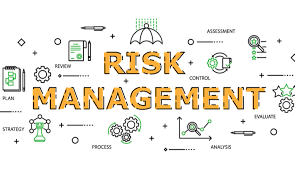In today’s dynamic business landscape, uncertainty and risk have become constants rather than occasional challenges. Whether it’s economic fluctuations, technological disruptions, or global crises, businesses must be equipped to manage risks effectively to thrive in an unpredictable environment.
Navigating uncertainty requires a proactive approach and a robust risk management strategy. Here are some valuable tips to help businesses manage risks and minimize the impact of uncertainty. And you can find the best CFD Brokers here, but more on this later…
Conduct a Comprehensive Risk Assessment
To effectively manage risks, businesses must first identify and understand the potential threats they face. Conduct a thorough risk assessment to identify both internal and external risks specific to your industry and organization. Consider financial, operational, legal, reputational, and strategic risks. This assessment will provide a solid foundation for developing a risk management plan.
Develop a Risk Management Plan
Once risks have been identified, it’s essential to create a well-defined risk management plan. This plan should outline the strategies, policies, and procedures that will be implemented to mitigate and respond to risks. Clearly define roles and responsibilities, establish risk tolerance levels, and develop contingency plans for different scenarios. Regularly review and update the plan to adapt to evolving risks.
Foster a Risk-Aware Culture
Managing risks shouldn’t be the sole responsibility of a few individuals; it should be embedded in the organizational culture. Create a risk-aware culture by promoting open communication, transparency, and accountability. Encourage employees to report potential risks and provide mechanisms for them to do so anonymously if needed. Foster a culture of continuous learning and improvement, where risks are seen as opportunities for growth.
Diversify Your Business
Investing in a diversified portfolio is an essential strategy for managing business risks. A diversified portfolio spreads investments across different asset classes and sectors, reducing the impact of a single investment’s performance on your overall portfolio. One way to diversify is through Contracts for Difference (CFDs). CFDs allow businesses to speculate on the price movements of various underlying assets, such as stocks, indices, commodities, or currencies, without owning the assets outright.
Establish Strong Relationships
Building strong relationships with stakeholders can be a valuable asset in times of uncertainty. This includes customers, suppliers, investors, and even competitors. Maintain open lines of communication, collaborate on risk management strategies, and establish contingency plans together. Strong relationships can provide access to additional resources, support, and alternative solutions when facing unforeseen challenges.
Stay Informed & Adapt
In an ever-changing business environment, staying informed is crucial. Monitor industry trends, regulatory changes, and emerging risks that could impact your business. Engage in market research, attend industry conferences, and participate in relevant forums. Be open to feedback and learn from the experiences of other businesses. Continuously adapt your strategies and operations to mitigate emerging risks effectively.
Invest in Technology & Data Analytics
Technology and data analytics can play a significant role in managing risks. Implement advanced analytics tools to gain insights into your business operations, identify patterns, and detect potential risks early on. Leverage automation and AI-powered solutions to streamline processes, enhance decision-making, and reduce human error. Embrace digital transformation to stay agile and responsive to changing circumstances.
Develop a Crisis Management Plan
Despite the best risk management efforts, crises may still occur. Therefore, it’s essential to have a well-defined crisis management plan in place. Identify potential crisis scenarios, establish clear communication protocols, and designate a crisis management team. Regularly conduct crisis response drills to ensure preparedness and minimize the impact of unforeseen events.
Maintain Financial Resilience
Sound financial management is crucial for managing risks effectively. Maintain healthy cash flow, establish contingency funds, and regularly review and update financial projections. Explore insurance options to protect your business against specific risks. A strong financial foundation will provide the flexibility to navigate uncertainty and withstand unexpected challenges.
Learn from Past Experiences
Finally, remember to learn from past experiences. Conduct post-mortem analyses after significant events or risks to identify lessons learned and areas for improvement. Document best practices and incorporate them into your risk management strategy. A culture of continuous improvement will help your business become more resilient and better equipped to navigate future uncertainties.





Be First to Comment